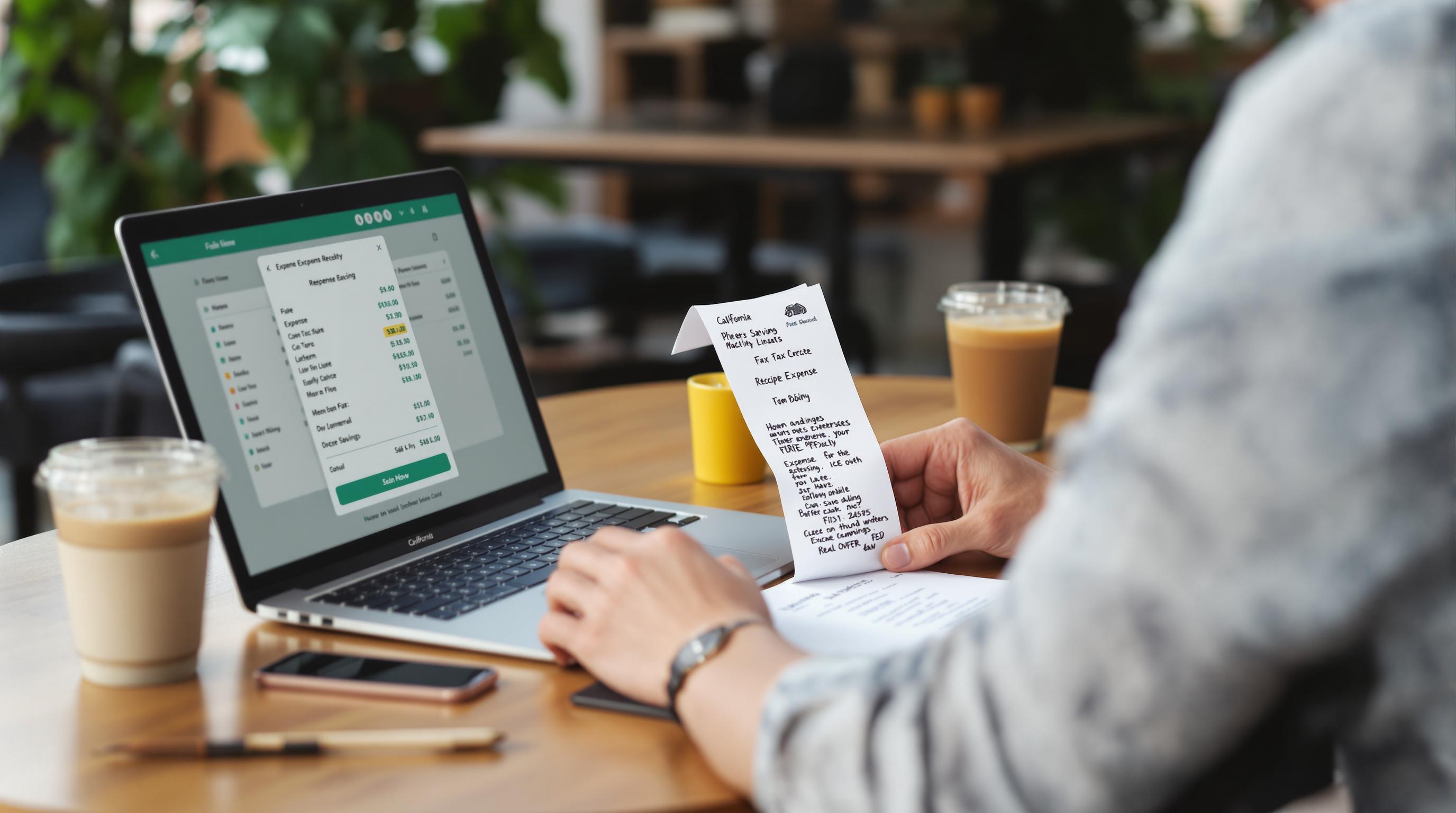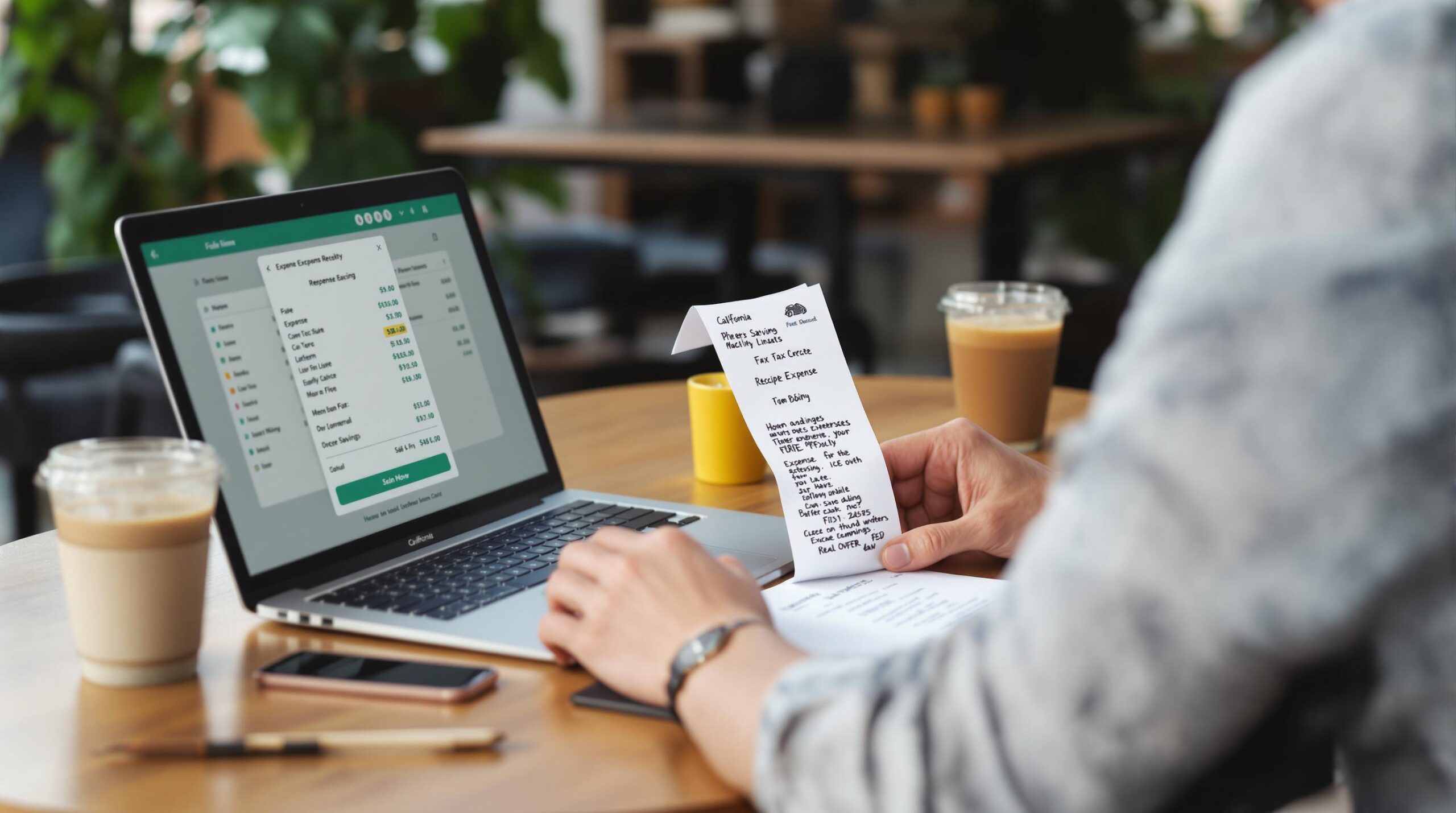The Best Expense Tracking Tools California Freelancers Should Use for 2025 Tax Savings
If you’re a freelancer working in California, there’s a 79% chance you’re leaving tax deductions on the table—simply because you’re not using the right expense tracking tool. That’s like handing the IRS $4,200 a year you could easily keep. Here’s what most gig workers get wrong: they wait until tax season to cobble receipts together or rely on a spreadsheet they barely touch after April 15th. But with 2025 IRS rule changes tightening scrutiny over freelance deductions, this old approach turns minor mistakes into audit magnets. The turn: Powerful, user-friendly digital tools are now available that can automatically track every eligible expense, keep you audit-safe, and help you keep thousands you’d otherwise lose. Are you set up for these changes—or are you about to overpay again?
Quick Answer: Why Expense Tracking Tools Matter in 2025
For California freelancers in 2025, using advanced expense tracking software makes it almost impossible to miss legal write-offs. These tools save you time, drastically lower audit risk, and often boost your average deductions by $3,000–$7,000 per year compared to manual tracking. If you earn any 1099 income, investing in the right app is now non-negotiable.

2025’s Top Expense Tracking Tools for Freelancers
Let’s get concrete. Below are three expense tracking tools dominating the freelancer market in California for 2025, with real use cases and the tax-saving features that matter most.
1. Everlance: Built for 1099 Simplicity
- Automatic Mileage Tracking: IRS-accepted mileage logs that run in the background. Saves the average Uber driver or delivery freelancer $2,150/year.
- Receipt Scanning: Snap, upload, and auto-sort expenses into IRS categories.
- Bank Integration: Links to your checking account and cards, automatically tagging deductible expenses. Easiest way to support a Schedule C if you land in an audit.
Persona example: Maria, a Bay Area freelance photographer, tracked all her car trips and camera gear purchases. Her net taxable income dropped $8,200 after switching from spreadsheets to Everlance.
2. Expensify: The Power-User’s Choice
- Advanced Receipt Management: Auto-scan receipts, match with bank transactions, and export everything as audit-ready PDF reports.
- Multi-Client Invoicing: Seamlessly generate, send, and track invoices for multiple clients—cutting late payments in half.
- Real-Time Expense Sync: See your current deduction total throughout the year instead of tax season surprises.
Persona example: Kevin, a Silicon Valley consultant, discovered Expensify not only cut bookkeeping hours in half, it found $5,600 in travel and tech deductions he missed last year.
3. Zoho Expense: Best for Project-Based Freelancers
- Project/Client Tags: Sort expenses by project for granular deduction tracking—ideal for designers and writers juggling multiple gigs.
- Mobile OCR: Use your phone camera to snap receipts; the app will read and categorize them in seconds.
- Policy Compliance: Auto-alerts if you overspend on non-deductible items, so you avoid red-flagging your return.
Persona example: Leila, a freelance graphic designer in Los Angeles, used Zoho Expense to document every software subscription and client meal. Result: Her CPA found an extra $3,900 in deductions she would’ve missed with manual tracking.
How Advanced Tracking Protects You from IRS and FTB Audits
New for 2025: The IRS and California Franchise Tax Board (FTB) have increased their focus on high-volume 1099 workers. Automatic logs, digital receipts, and seamless record-keeping through these apps create a comprehensive audit shield. Manual tracking or missing receipts are the #1 trigger for denied deductions and audit headaches.
- IRS Publication 463: Requires “adequate records” for deductions. Digital logs from tools like Everlance meet this standard flawlessly (link).
- CA FTB: Now requests digital docs for 1099 income audits—cloud-based apps deliver instantly.
Trap: Don’t wait until January—audits often target prior years. These tools create an “audit trail” in real time, proving you’re compliant, not just organized.
Common Mistake: Relying on Bank Statements Alone for Tax Prep
Too many freelancers assume bank statements will cover their bases. Wrong. The IRS and FTB want detailed receipts and mileage logs—and will disallow deductions not properly documented, even if they’re real business costs. Expensify and Everlance store timestamped, categorized records; spreadsheets and bank printouts can’t.
- Red Flag: Spreadsheets rarely include required details like business purpose or trip mileage.
- Pro Tip: Even $7 in late-night coffee runs adds up: Everlance flagged $1,045 for a San Jose writer in “missed” coffee/meal deductions last year.
How to Set Up Expense Tracking Tools: Step-by-Step
- Choose the tool that fits your client/project mix (see above).
- Connect your bank accounts and cards. Import last 12 months for a clean start.
- Set up auto-scanning for receipts and, if you drive, mileage tracking.
- Review categories once a month — correct any odd tags (Expensify makes this easy).
- Download the year-end summary PDF for your CPA or tax software.
Start mid-year? Most tools let you import prior expenses—so you can grab every deduction possible before December 31.
What If You Use Cash? Are Tips and Cash Purchases Deductible?
Cash is still deductible—if you log it. These tools let you manually create entries for cash purchases, so you don’t lose out. Always note the business purpose, date, and amount for each.
- FAQ: “Can I claim cash tips given to clients or baristas as a business expense?” Yes, with a detailed note; IRS expects a business reason.
- FAQ: “Do I still need to keep paper receipts?” Not if they’re scanned and stored digitally—IRS accepts digital records (see Publication 583).
Will Using These Tools Trigger an Audit?
Actually, the exact opposite: The more organized and detailed your records, the less attractive you are as a target. Everlance and Expensify export IRS-formatted logs, making you look like a “low risk” fill-in-the-blank taxpayer. Just keep records for at least three years after you file.
Bottom Line: 2025 Expense Tracking Is a Strategy, Not an App
Choosing the right expense tracking tool isn’t just for organization—it’s an IRS and FTB audit prevention strategy, a time saver, and a direct way to keep more income. With audits increasing and deduction rules getting stricter, automated digital apps aren’t a luxury. They’re your line of defense (and savings) for every California freelancer or independent contractor.
This information is current as of 7/8/2025. Tax laws change frequently. Verify updates with the IRS or FTB if reading this later.
Book Your California Freelancer Tax Strategy Session
Stop guessing which deductions you’re missing—and start keeping more of your freelance income. Book a quick strategy session and walk away with 3 actionable moves tailored for your business. Click here to get your tax-saving session now.
The IRS isn’t hiding these write-offs—you just weren’t taught how to find them.
FAQ: Expense Tracking for California Freelancers
- Is Everlance or Expensify better for rideshare drivers? Everlance tends to win for mileage tracking, but Expensify offers more robust receipt management. Try each free for a week.
- How long should I keep my digital receipts? Three years is the standard IRS rule. Some cases (like audits or amended returns) may require up to six.
- Can these apps be used for S Corp or LLC tracking? Yes—but talk to your strategist; integration with payroll and entity accounting may require extra setup. Explore entity options here.
For additional tax-saving ideas and compliance guides, see our Tax Planning and KDA Services pages.



